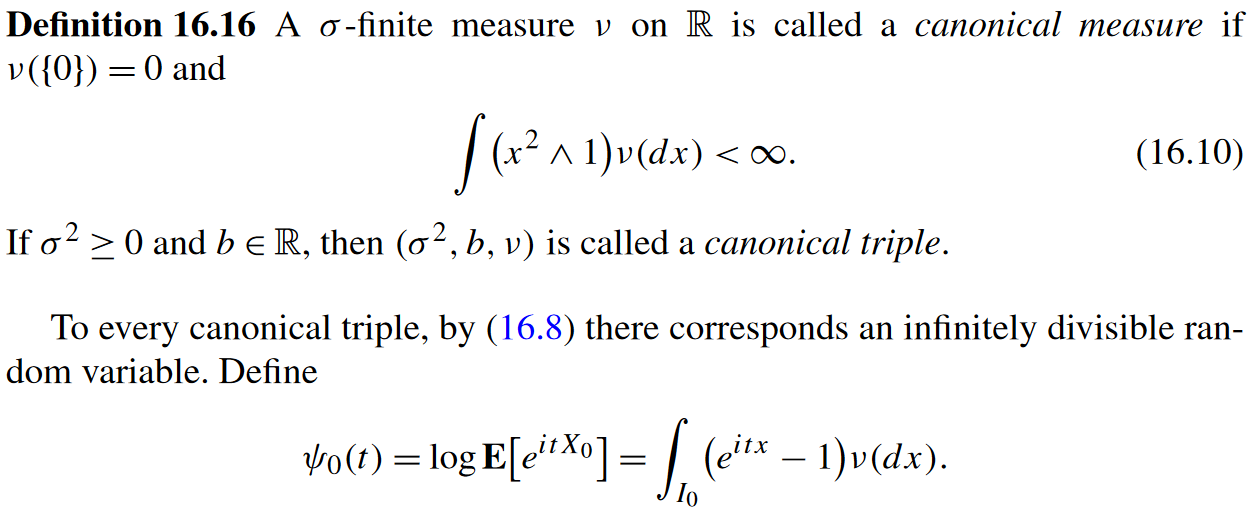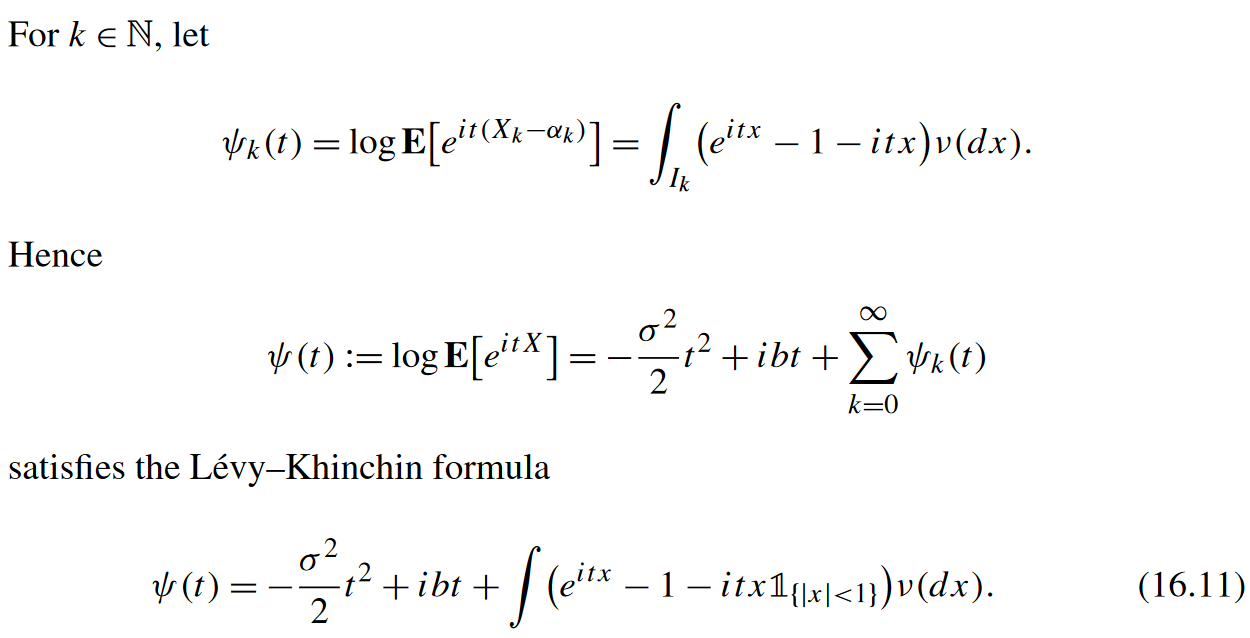Please take a look at the following statement of the Lévy–Khintchine formula given in Probability Theory: A Comprehensive Course (2nd edition)$^1$:
Am I missing something or is this an ill-posed statement? What I mean is the following: If $\mu$ is infinitely divisible, we can show that the characteristic function $\varphi_\mu$ of $\mu$ is $\ne0$ on its entire domain, which in turn implies that there is a unique $f\in C^0(\mathbb R,\mathbb C)$ with $f(0)=0$ and $$\varphi_\mu=e^f.\tag1$$ I'm still trying to understand the purpose of the Lévy–Khintchine formula, but if I got it right, the goal is to give a characterization of $f$.
Now, I guess some authors (including the one of the cited book) write $\ln\varphi_\mu:=f$; which is confusing, since $f$ is clearly not the composition of $\ln$ and $\varphi_\mu$.
However, even with this possible notational hack in mind, if we are not a priori assuming that $\mu$ is infinitely divisible, the existence of $f$ cannot be shown and hence $\psi$ is (at best) a multivalued function.
Am I missing something? Every source I was able to find states the Lévy–Khintchine formula in this way. Wouldn't it be better to state the claim for $\int e^{{\rm i}tx}\mu({\rm d}x)=\varphi_\mu(t)$ instead?



